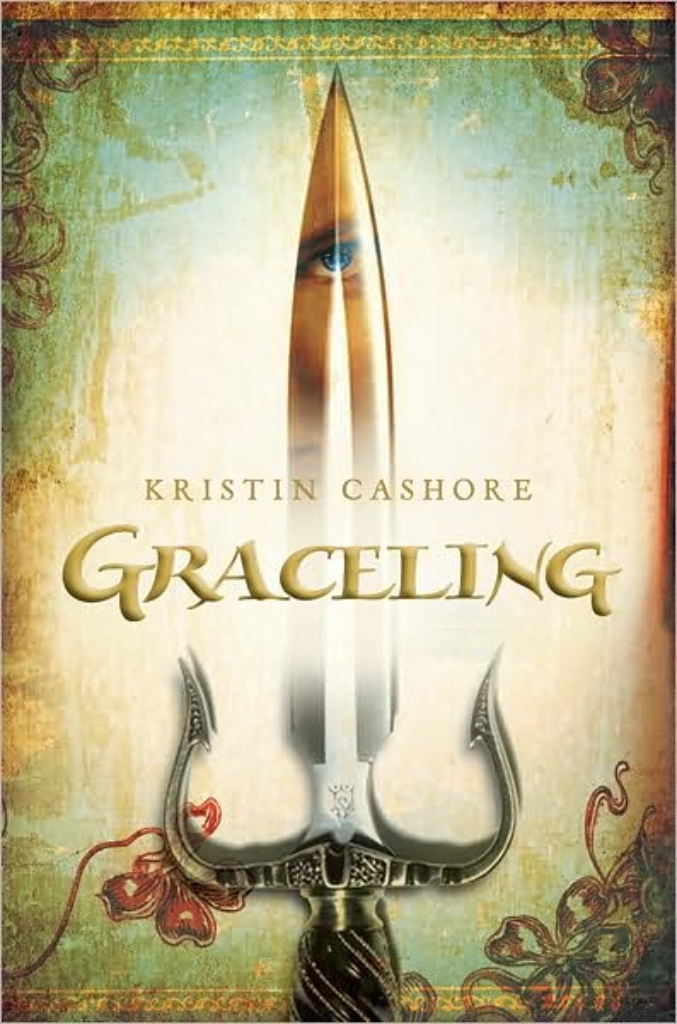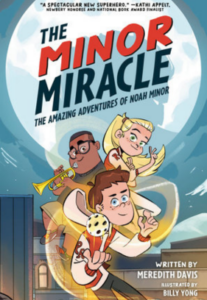In Katsa’s world, people with two different-colored eyes are called Gracelings. They may be Graced with the ability to read minds, to cook, to be storytellers or any combination of other skills. Katsa was 8 when a cousin tried to touch her inappropriately. She killed him. Since then, her uncle and guardian (King Randa of the Middluns) has deemed her his Graceling killer. He’s trained her and sent her to maim or murder his enemies. Though Katsa hates killing, she believes it is her Grace and, therefore, her lot in life.
Attempting to use her skills for good, the teenage Katsa has formed a covert vigilante group called the Council. They right the wrongs perpetrated by the land’s seven kings. She and two friends are in the midst of rescuing the Lienid king’s kidnapped father when Katsa encounters another man of Lienid descent in the courtyard. He is clearly Graced with fighting skills like Katsa, but she is able to knock him unconscious. She worries that his having seen her will endanger the Council’s missions.
The Lienid man appears at King Randa’s palace a few days later. Katsa learns he is Prince Po of Lienid, grandson of the man the Council rescued. He and Katsa engage in hand-to-hand combat and both enjoy the unusual experience of competing with someone worthy of their skills. Katsa takes Po to his unconscious grandfather, whom she’s hidden in the palace. Po decides to stay in the kingdom to monitor his grandfather’s healing and see if the old man can remember who kidnapped him. Katsa and her Council allies cover for Po, claiming he’s staying around to practice combat with Katsa.
Po and Katsa fight one another often and develop a friendship. Po convinces Katsa she has the power to refuse King Randa when her uncle commands her to kill. Katsa tells Randa that she’ll no longer be his thug and leaves with Po in search of his grandfather’s kidnapper. As they travel together, they fall in love. But Katsa has vowed she will never marry or have children. Po suggests they just be lovers, and she decides this will allow her to maintain her freedom. Po helps her realize that her true Grace isn’t killing, but survival. It isn’t taking life, but preserving it.
Po and Katsa begin to suspect that King Leck of Monsea, known for his kindness to the weak and to animals, may be a fraud and Grandfather’s kidnapper. They believe he has a Grace that allows him to deceive people and control their thoughts. Po and Katsa rescue his 10-year-old daughter, Bitterblue, who details his cruelty and lies, after they witness him murdering his wife in the forest. To get Bitterblue to safety, they face injury, difficult decisions and a treacherous mountain pass. When they arrive back in Lienid, they find that Leck has confused the minds of Po’s royal relatives. Katsa kills Leck, breaking the spell and making Bitterblue queen of Monsea.
In the end, Po’s injuries result in blindness. Katsa stays with him to help him recover from his depression and rediscover the power of his Grace. They decide to ignore the friends and family who urge them to marry and continue to live happily in the woods as lovers.











